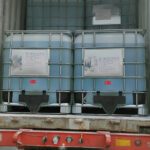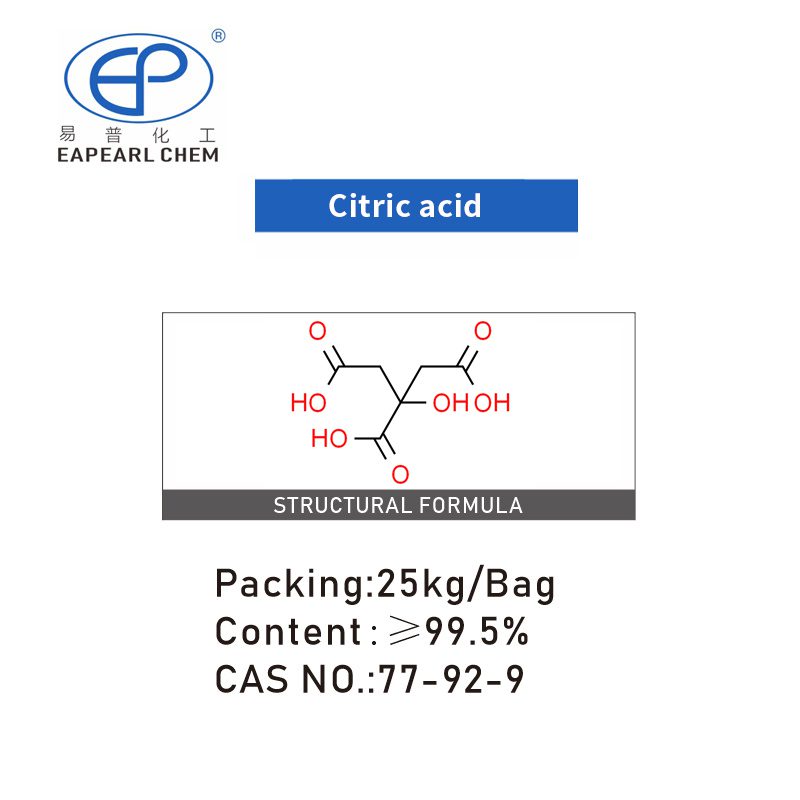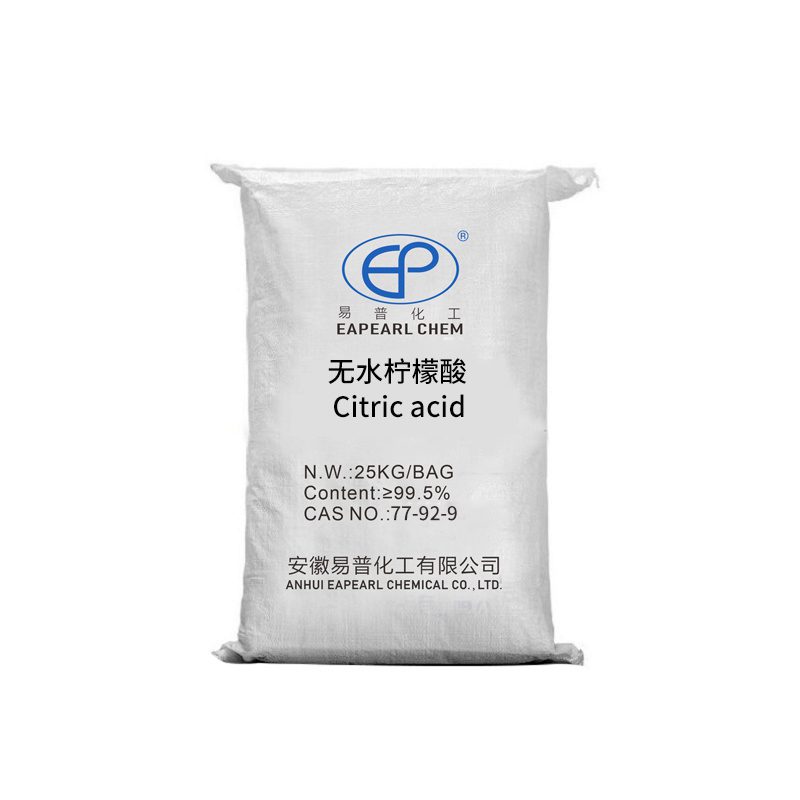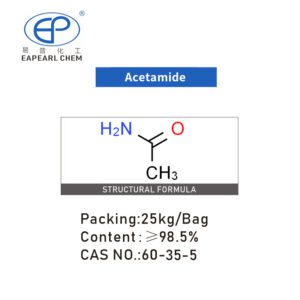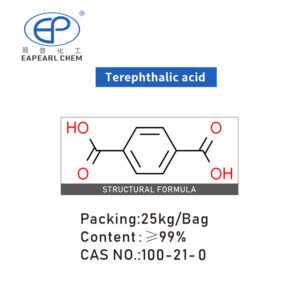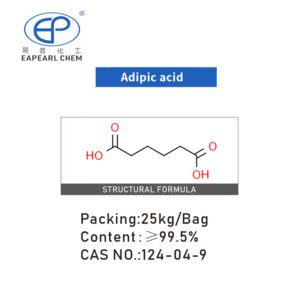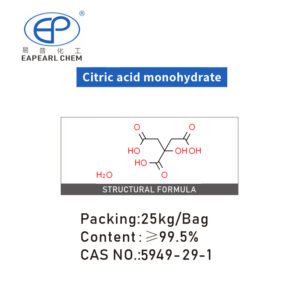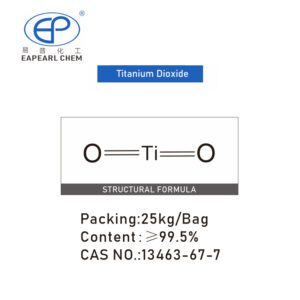Citric acid
Citric acid is a weak organic tricarboxylic acid found in citrus fruits. Citric acid is a natural preservative and food tartness enhancer.
| Product Name: | Citric acid |
|---|---|
| CAS No.: | 77-92-9 |
| Purity | ≥99% |
| Packing: | 25kg/Bag |
| HScode: | 2918 14 00 |
We use the latest network security technology to protect your personal information from leakage, and to ensure that you can shop safely and securely.
Share
Description:
Preparation method:
This product is mainly produced by fermentation, and its raw materials can be molasses, sucrose, sweet potato, petroleum hydrocarbons and other carbohydrates. Generally, fungi are used for fermentation production, and can be divided into two categories: surface fermentation and submerged fermentation according to the fermentation method. Surface fermentation is an early production method, and some Penicillium or Aspergillus niger is used as the strain; the submerged fermentation method also uses Aspergillus niger as the strain to generate small spherical filamentous aggregates during the fermentation process. The growing and thin filamentous cells should be avoided, and the fermentation condition is pH 1.5-2.8, at the same time, sterile air should be introduced and stirred, and the fermentation is completed to remove Silk cells and residual solid waste. The filtrate is neutralized with calcium carbonate to obtain calcium citrate, and then neutralized with concentrated sulfuric acid to obtain crude citric acid, the product is refined, concentrated and crystallized by ion exchange resin. The yield of submerged fermentation was about 80%.
Synonyms:
Characteristics:
| Molecular Formula | C6H8O7 |
| Molar Mass | 192.12 |
| Density | 1.67 g/cm3 at 20 °C |
| Melting Point | 153-159 °C (lit.) |
| Boling Point | 248.08°C (rough estimate) |
| Flash Point | 100 °C |
| JECFA Number | 218 |
| Water Solubility | soluble in Water (1174g/L at 10°C, 1809g/L at 30°C, 3825g/L at 80°C). |
| Solubility | Soluble in water 750g/L (20°C), ethanol, ether, insoluble in benzene, slightly soluble in chloroform |
| Vapor Presure | <0.1 hPa (20 °C) |
| Vapor Density | 7.26 (vs air) |
| Appearance | White crystalline powder |
| Color | White |
| Odor | Odorless |
| Maximum wavelength(λmax) | [‘λ: 260 nm Amax: 0.20’, , ‘λ: 280 nm Amax: 0.10’] |
| Merck | 14,2326 |
| BRN | 782061 |
| pKa | 3.14(at 20℃) |
| PH | 3.24(1 mM solution);2.62(10 mM solution);2.08(100 mM solution); |
| Storage Condition | 2-8°C |
| Stability | Stable. Incompatible with bases, strong oxidizing agents, reducing agents, metal nitrates. |
| Sensitive | Hygroscopic |
| Explosive Limit | 8%, 65°F |
| Refractive Index | 1.493~1.509 |
| MDL | MFCD00011669 |
| Physical and Chemical Properties | Relative density 1.542, melting point 153 ℃ (water loss), refractive index 1.493~1.509 colorless translucent crystals or white particles, or white crystalline powder, often containing a molecule of crystal water, odorless, extremely sour taste, soluble in water, alcohol and ether. Its calcium salt is more soluble in cold water than hot water, and this property is often used to identify and isolate citric acid. Anhydrous citric acid can be obtained by controlling the appropriate temperature during crystallization. The aqueous solution was acidic. It is slightly weathered in dry air and deliquescent in moist air. Above 175 deg C and carbon dioxide free water. |
| Use | Used as experimental reagents, chromatographic analysis reagents and biochemical reagents, also used in the preparation of buffer. It is used in the food industry in particular as an acidifying agent, a PH buffering agent, and together with other compounds as a preservation agent. In the detergent industry, it is an ideal substitute for phosphate. Boiler chemical cleaning pickling agent, boiler chemical cleaning rinsing agent. It is mainly used as a sour agent for food, and is also used for the preparation of medical coolants and detergents? |
Use
FAQ:
Q1. What is Citric Acid?
A1. Citric Acid is a natural organic acid commonly found in citrus fruits like lemons and oranges. It is widely used in various industries, including food and beverage, pharmaceuticals, personal care products, and cleaning agents.
Q2. What are the main applications of Citric Acid?
A2. Citric Acid has multiple applications across different industries. It is primarily used as an acidulant, flavoring agent, and preservative in the food and beverage industry. It is also utilized to produce pharmaceuticals, dietary supplements, cosmetics, and personal care products. Additionally, Citric Acid finds applications in cleaning agents, descaling agents, and water treatment formulations.
Q3. What are the benefits of using Citric Acid?
A3. Citric Acid offers several benefits in different applications. In the food and beverage industry, it acts as a natural preservative, enhances flavor, and adjusts pH levels. In the pharmaceutical industry, Citric Acid aids in formulating medicines and supplements. In cleaning agents, it helps remove mineral deposits and scale. Moreover, Citric Acid is eco-friendly and biodegradable, making it a preferred choice for sustainable products.
Q4. What are the different grades of Citric Acid available?
A4. We offer various grades of Citric Acid to cater to diverse customer requirements. The most commonly available grades include:
- Food Grade: Meets the highest purity standards and is suitable for food and beverage applications.
- Pharmaceutical Grade: Complies with strict regulations and quality standards for pharmaceutical applications.
- Industrial Grade: Designed for industrial applications such as cleaning agents and water treatment formulations.
Q5. Is Citric Acid safe to use?
A5. Citric Acid is generally recognized as safe when used by recommended guidelines and regulations. It is widely used in the food industry as an additive and has a long history of safe use. However, as with any chemical substance, handling and using Citric Acid responsibly is important, following appropriate safety precautions and guidelines.
Q6. What packaging options are available for Citric Acid?
A6. We offer a range of packaging options to suit different customer needs. Common packaging options include bags, drums, and bulk containers. Specific packaging requirements can be discussed with our sales team to ensure your needs are met efficiently.
Q7. What is the shelf life of Citric Acid?
A7. The shelf life of Citric Acid depends on various factors, including storage conditions and packaging. Typically, if stored in a cool, dry place and the original sealed packaging, Citric Acid can have a shelf life of up to two years. It is important to ensure proper storage to maintain the quality and effectiveness of the product.
Q8. Can Citric Acid be customized for specific applications?
A8. Yes, we understand that different industries and applications may require specific formulations or specifications. We can work closely with our customers to develop custom solutions and tailor Citric Acid to meet their unique requirements. Please reach out to our sales team to discuss your specific needs.
Q9. How can I place an order for Citric Acid?
A9. To order Citric Acid, please get in touch with our sales team through the provided contact information on our website. Our team will assist you with product availability, pricing, and any other information you may require. We strive to provide efficient order processing and prompt delivery to our customers.
Q10. Are you able to export Citric Acid to other countries?
A10. As a chemical manufacturer, we have experience exporting Citric Acid to various countries worldwide. We can provide the necessary documentation and comply with international regulations for our products’ smooth and timely export. Please get in touch with our sales team for further details regarding international shipments.
Please get in touch with our team if you have any other questions or need additional information. We are here to assist you in finding the right Citric Acid solution for your specific requirements.
相关产品
Loading Video or Picture:


